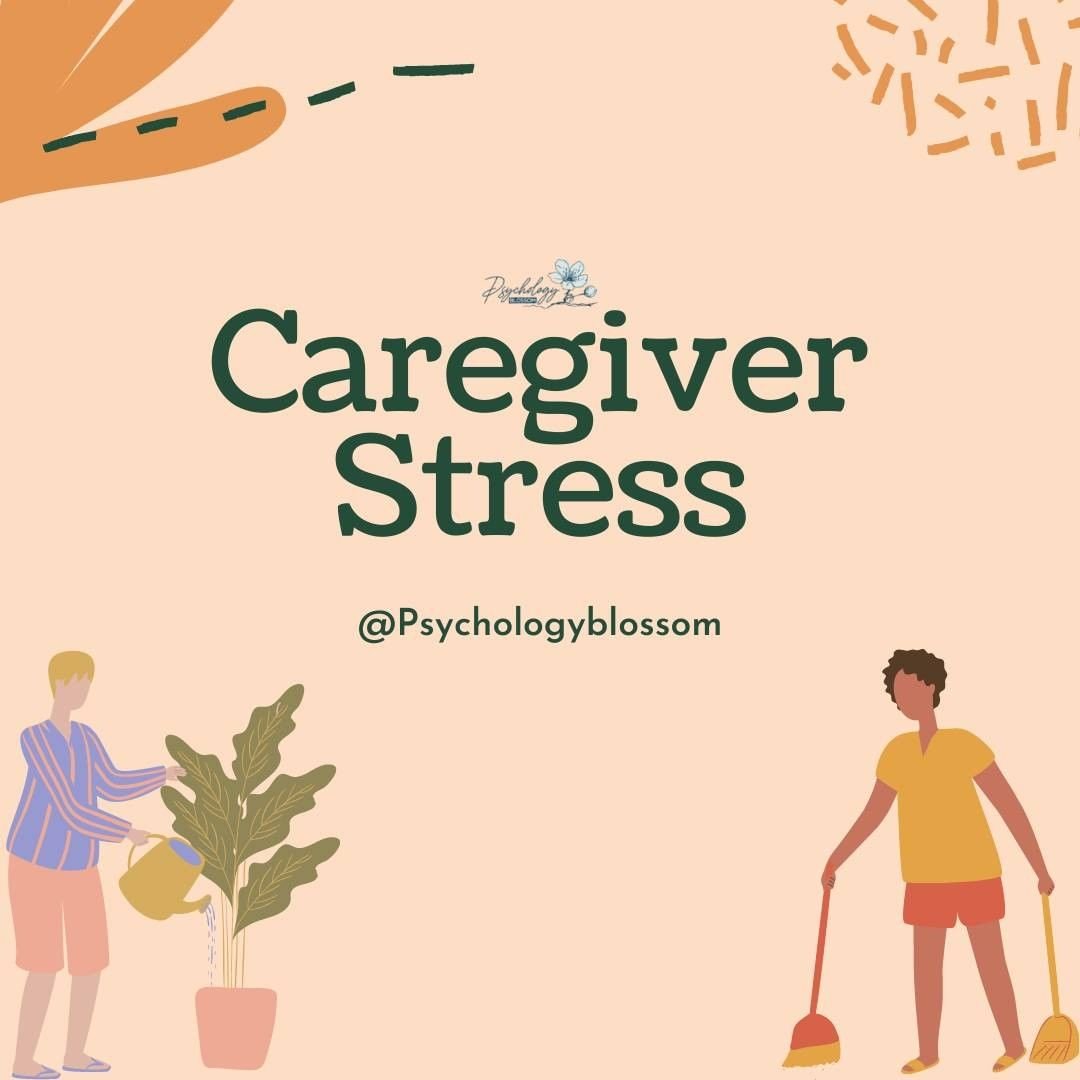Caregiver Stress & Burnout: Practical Ways to Cope, Recover, and Keep Caring
Taking care of yourself is not a luxury—it is a necessity. Though caring for a loved one can be immensely fulfilling, it also comes with a lot of caregiver stress. As caregiving is often a long-term commitment, the emotional toll may build up over time. You may be responsible for years, if not decades, of caregiving. It can be especially distressing if there is little hope that your loved one will fully recover, or if their condition gradually deteriorates despite your best efforts. None of this means you are doing something wrong; it means you are human. Compassion for the person you care for begins with compassion for yourself.
Caregiver stress can negatively impact your health, relationships, and mental state, and may eventually lead to burnout—a condition of emotional, mental, and physical exhaustion. Burnout does not arrive overnight. It often begins with skipped meals, poor sleep, postponed checkups, and the quiet belief that “my needs can wait.” Over time, motivation fades, patience thins, and joy disappears. This hurts both you and the person you are caring for, because you need to take care of yourself to be able to take care of others.
Caregiver stress can manifest itself in many ways. One moment you may feel upset and angry, the next helpless and numb. You might make an error while delivering medications, forget an appointment, or find yourself engaging in unhealthy activities such as smoking or excessive alcohol consumption. Guilt can creep in after any lapse, even small ones, fueling a harsh inner critic that makes the work feel even heavier. Learning to notice early signals and respond with skill—not shame—can prevent a slide into burnout.
Some of the Signs and Symptoms
- Feeling overwhelmed
- Feeling alone or abandoned by others
- Too much or too little sleep
- Putting on or losing a significant amount of weight
- Feeling tired most of the time
- A loss of interest in things you used to appreciate
- Frequently becoming irritated or angered
- Feeling worried or upset often
- Frequent headaches or bodily discomfort
Stress can be beneficial when it helps you mobilise resources to meet a challenge. Short bursts sharpen focus and energy. However, long-term stress—including caregiver stress — can cause major health problems. Sustained strain raises risks for mood disorders, sleep disruption, immune changes, and chronic illnesses; it also increases errors in complex caregiving tasks such as medication management, appointment coordination, and financial planning.
How Does Caregiver Stress Affect lives?
✽ Anxiety and Depression
Anxiety and depression often travel with chronic stress (including Caregiver Stress) and can raise the chances of developing health issues including heart disease and stroke. Anxiety may show up as constant worry about symptoms or “what if” scenarios; depression may show as persistent low mood, loss of interest, and feeling “flat.” Both conditions sap energy and reduce the capacity to engage in restorative activities—creating a difficult loop without deliberate interruption and support.
✽ Weakened Immune System
Chronic stress suppresses immune function. Caregivers under ongoing pressure may catch colds or flu more frequently than non-caregivers and take longer to recover. Poor sleep compounds this effect. Regular movement, balanced nutrition, hydration, and if possible vaccinations and routine health checks help strengthen defences and shorten recovery times.
✽ Higher Risk for Chronic Illnesses
High stress levels—especially when paired with depression—can increase risk for chronic conditions including heart disease, diabetes, arthritis, and certain cancers. Prolonged activation of the body’s stress systems raises blood pressure and inflammation and can disrupt glucose regulation. These invisible processes add up over months and years; proactive self-care and medical follow-up act as essential counterweights.
✽ Short-Term Memory Issues or Inability to Pay Attention
Attention and memory are especially vulnerable under strain. Short-term memory and attention impairments are more common in caregivers of spouses with Alzheimer’s disease and other long-term conditions. Multitasking, interrupted sleep, and constant vigilance drain cognitive bandwidth. Externalise memory (lists, alarms, pill boxes, calendars), reduce decision load where possible, and protect sleep as if it were a prescription medication.
Core Skills for Caregivers: What Helps Right Now
Micro-restoration throughout the day. Two minutes of slow breathing, a glass of water, a brief stretch, or sunlight at the window resets stress physiology fast. Sprinkle these resets between tasks.
Boundaries protect everyone. Saying “I can do X, but I can’t do Y” prevents hidden resentment and unsafe overextension. State limits kindly and clearly; offer alternatives where possible.
Notice-and-name practice. Catch early signs of overload (tight jaw, rushing, critical self-talk). Name them: “I’m at 7/10 stress.” Naming flips the brain from autopilot to awareness—your cue to apply a coping tool.
Some Tips to Cope with Caregiver Stress
✽ Improve on Management of Tasks
Break big jobs into smaller pieces and set achievable goals. Make a to-do list and establish a routine. Decide on three priorities for the day and let the rest be optional. Use visual schedules, colour-coded calendars, and medication organisers. Batch similar tasks (calls, forms) and assign a weekly “admin hour” to prevent paperwork pileups. Keep an emergency folder with essential information: medication list, dosages, allergies, diagnoses, physician contacts, insurance details, and advance directives.
✽ Seek Help from Your Family
Inventory your strengths—and your limits. Gather family members and discuss the allocation of tasks. One person might handle transport, another shopping, another finances, and another companionship. Specify frequency (“every Tuesday and Friday”), duration, and a backup plan. If family support is thin, ask neighbours, community or faith groups, or friends for specific, time-limited help (“Could you sit with Mum for 90 minutes on Wednesdays so I can shop?”). The clearer the ask, the likelier the yes.
✽ Improve Your Knowledge about Caregiver Stress and coping Skills
Training reduces fear and errors. Attend caregiver training to acquire essential techniques, such as personal care for a bedridden senior, safe transfers, wound care basics, or meaningful engagement with dementia patients. Ask clinicians to demonstrate tasks and let you practise under supervision. Learn symptom red flags and when to seek urgent help. Understanding the disease course and treatment options helps you anticipate rather than constantly react.
✽ Make a Financial Plan and Budget for Your Expenses
Money stress magnifies caregiver stress. Explore financial aid programmes that may offset treatment and equipment costs. Track recurring expenses (supplies, transport, co-pays) and one-offs (ramps, grab bars). Talk to a medical social worker about grants and initiatives if you’re having financial issues. Consider appointing a trusted person as financial proxy if cognitive impairment is present; set up systems for bill autopay, document storage, and fraud protection.
✽ Participate in Support Groups
Support groups normalise your experience and expand your toolbox. Meeting others in similar situations offers practical tips, local resource recommendations, and a place to speak freely without burdening family. Whether in-person or online, commit to sampling at least three sessions before deciding if a group is a fit; the right group can be a lifeline.
✽ Consider Respite Care to Give Yourself a Break
Respite care is essential maintenance, not indulgence. Short-term relief—from a few hours to several days—may be provided by family, volunteers, adult day programmes, or paid home-care aides. Plan respite care on your calendar the same way you plan medical appointments. Use that time for rest, social connection, errands without rushing, or activities that restore your identity outside caregiving.
✽ Consult a Professional
Team up with healthcare providers. Ask about the disease course, treatment options, and home-care best practices. Request written instructions and teach-back (“Let me repeat to be sure I’ve got it right”). Schedule regular check-ins to adjust plans as needs change. If you’re feeling overwhelmed, say so—your wellbeing is a crucial part of the care plan.
✽ Speak with a Therapist if You Need Help Coping with Your Emotions from the Caregiver Stress
Counselling offers tools for emotion regulation, communication, and boundary-setting. Therapists can help you address grief (for the life you and your loved one once had), guilt (for not doing “enough”), resentment (a normal response to chronic strain), and anxiety. Modalities such as cognitive behavioural therapy (CBT), acceptance and commitment therapy (ACT), and brief problem-solving therapy are frequently helpful for caregivers. If alcohol or substance use is creeping in as a coping strategy, talk about it early—compassionate help is available.
Building a Sustainable Self-Care Plan
Sleep: Aim for consistent bed and wake times. Create a simple wind-down ritual: dim lights, light stretching, slow breathing, and screens off 60 minutes before bed. If night caregiving is required, schedule naps and recruit others for occasional overnight coverage.
Nutrition: Keep ready-to-eat, nutrient-dense options on hand (yoghurt, nuts, pre-cut vegetables, whole grains, fruit). Hydrate early and often. Stack eating with routine tasks (“snack after meds,” “water with every bathroom break”).
Movement: Ten minutes counts. Walk the corridor, take stairs once, or do a gentle chair routine. Movement stabilises mood, improves sleep, and protects long-term health.
Mindfulness and grounding: Try box breathing (inhale 4, hold 4, exhale 4, hold 4 for 2–3 minutes), 5-4-3-2-1 sensory grounding, or a 60-second body scan. Use transitions (before entering the patient’s room, before a phone call) as cues to reset.
Connection: Schedule one meaningful conversation a week that is not about caregiving. Tiny rituals—a shared cup of tea, a three-line text check-in—keep relationships alive.
Joy and identity: Name two activities that make you feel like yourself. Protect 15 minutes for one of them twice weekly. Purpose is fuel—refill it deliberately.
Communication That Reduces Friction
With your loved one: Use clear, simple choices (“tea or water?”), validate feelings, and avoid arguing about facts when memory is impaired. Redirect gently toward comfort and safety.
With family: Replace “You never help” with specific, time-bound requests (“Could you handle Mum’s Wednesday appointments this month?”). Share a monthly update to align expectations and reduce last-minute scrambles.
With clinicians: Bring a concise list: top three concerns, recent changes, current meds, and one question about what to expect next. Ask for printed summaries or portal notes.
Red Flags: When to Seek Immediate Help
For your loved one: sudden confusion, chest pain, difficulty breathing, severe dehydration, uncontrolled pain, new neurological symptoms (e.g., weakness, slurred speech), or any rapid deterioration—seek urgent medical care.
For you: persistent thoughts of self-harm, using alcohol or drugs to get through the day, panic attacks, complete loss of motivation, or inability to perform essential tasks, another signs of exscessive Caregiver Stress. Reach out to a healthcare provider or crisis service. You are not alone—and support works.
Frequently Asked Caregiver Questions
“How do I deal with guilt regarding Caregiver Stress?” Guilt is common when reality doesn’t match ideals. Try a compassionate reframe: “I’m making hard choices with limited resources.” Replace all-or-nothing thinking with “good enough” care—safe, kind, consistent.
“What if my family disagrees about decisions?” Ask the care team for a goals-of-care conversation. Clarify the person’s values (comfort vs. life extension, place of care) and document decisions. Facts plus values reduce conflict.
“How can I afford help?” Ask a social worker about subsidies, grants, equipment loans, and day-programme options. Small supports (delivery services, transport vouchers) can make a big difference.
Your Worth Is Not Measured by Your Exhaustion
Caregiving support is love in action. Love does not require you to run on empty. The steadier you are, the steadier your care becomes. Start small, enlist support, and treat rest like the vital task it is. Step by step, you can build a caregiving rhythm that protects your health, honours your loved one, and sustains both of you for the long road ahead.
We recommend This Video to those who wants to learn more about Caregiving Stress and Caregiver Support.
About Us
We are a team comprising psychologists based in Singapore endeavouring our best to prioritise our clients’ needs. When you embark on this journey with us, we take a collaborative approach where you and your psychologist work closely together, and listen to what you have to say — No judgments, and in a safe space. Meet our Team, who would be happy to help you deal with Caregiver Stress
Quick Links
Contact Us
150 Cecil Street #07-02 S069543
Opening Hours
Monday to Friday: 8am to 6pm
Saturday: 8am to 2pm
Sunday: 10am to 2pm (Online only)
Admin Hours
Monday to Friday: 8am to 5.30pm
Saturday: 8am to 2pm
© Copyright 2023 – Psychology Blossom | Privacy Policy | Terms


